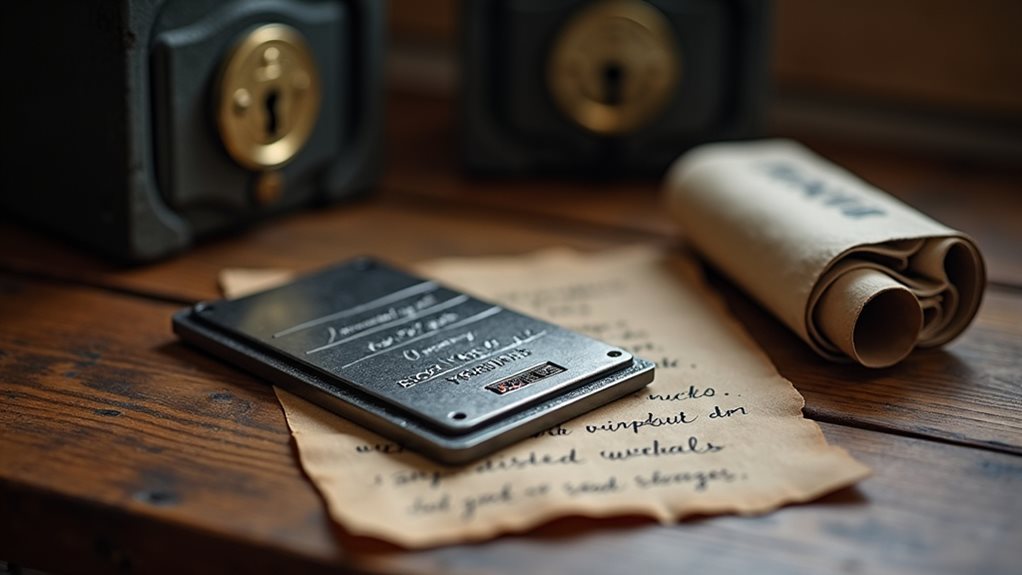Hardware wallets remain your best defense in 2025. Ledger Nano X supports 5,500+ cryptocurrencies with Bluetooth functionality, while NGRAVE ZERO offers EAL7 certification for maximum security. SafePal provides an affordable option at $49.99. Whatever you choose, look for air-gapped designs, military-grade secure elements, and multi-signature capabilities. Don't skimp on security features – your crypto isn't coming back if someone swipes it. The technology below will change how you protect digital assets forever.
How Hardware Wallets Revolutionized Crypto Security in 2025
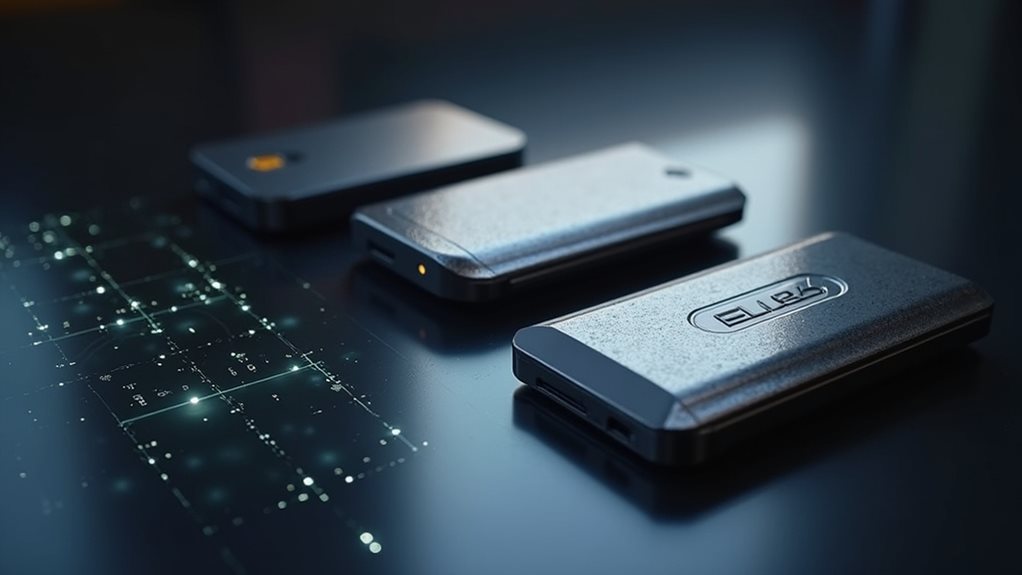
While traditional crypto storage left users vulnerable to countless online attacks, hardware wallets have dramatically transformed the security landscape in 2025. The crypto security advancements we've seen are nothing short of revolutionary.
Gone are the days of hoping your software wallet won't get hacked. Hardware wallet innovations now include fully air-gapped designs that literally can't be hacked remotely. Period. Your private keys never touch the internet—ever.
Think military-grade secure element chips that self-destruct if someone tries to tamper with them. Fancy that! Multi-cryptocurrency support means you're not juggling different devices for different coins. One wallet. Thousands of currencies.
Military-grade security meets user convenience—one device to rule them all, impenetrable protection for your digital fortune.
Recovery seeds have evolved too. Lose your device? No problem. Your backup system guarantees you're not crying over lost millions. In 2024 alone, over $1.9 billion in cryptocurrency was stolen, highlighting why these advanced security features are essential.
Hardware wallets require physical confirmation for each transaction, ensuring no remote attacker can drain your funds without having the actual device in hand.
Trust me, the offline advantage isn't just marketing hype—it's mathematical certainty.
Top 5 Most Secure Hardware Wallets on the Market Today
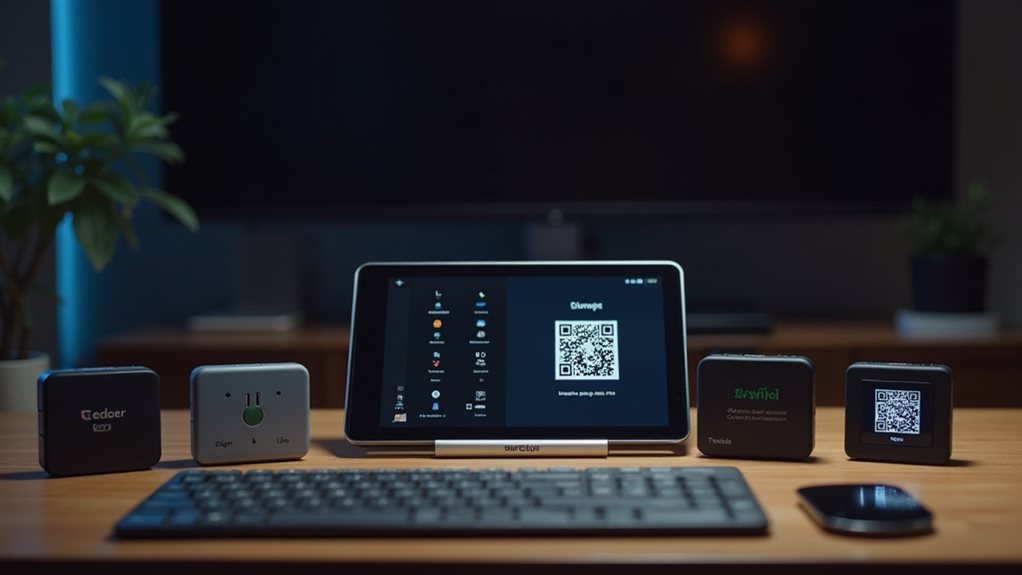
Five cutting-edge hardware wallets stand above the rest in 2025's ruthless crypto security market.
The Ledger Nano X features Bluetooth functionality with support for a staggering 5,500+ cryptocurrencies. Not bad for €124. Despite its convenience, this model has a CCAL 5+ rating, indicating less extensive security verification than other Ledger models. Two-factor authentication adds an essential layer of protection against unauthorized access.
Trezor's Model T emphasizes usability with physical confirmation buttons—no accidental transactions here, folks.
NGRAVE ZERO boasts EAL7 certification but comes with premium pricing at €398. Worth it? Maybe, if you're paranoid. The device utilizes QR codes for all transactions while maintaining complete air-gapped security.
The Ledger Stax innovations include a curved E Ink touchscreen and simultaneous support for 100 apps. Pretty slick.
SafePal comparisons highlight its affordability—just $49.99 gets you security that rivals the big boys, with support for 30,000+ cryptocurrencies.
Air-gapped and equipped with an EAL 5+ secure element. Budget-friendly doesn't mean vulnerable anymore.
Critical Security Features to Look for in Your Next Crypto Wallet
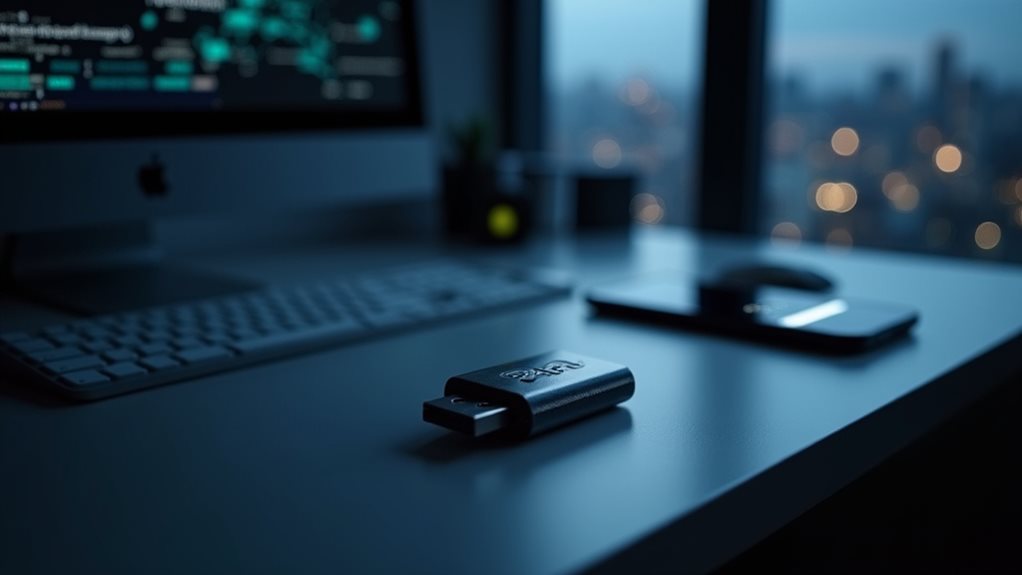
Why would anyone trust their life savings to a digital wallet without proper security? It's madness. Your crypto protection should be military-grade, not dollar-store quality.
Entrusting fortunes to flimsy digital security isn't bravery—it's playing Russian roulette with your financial future.
When shopping for a wallet, prioritize these non-negotiable features.
- Strong encryption standards paired with biometric security (fingerprints don't get phished, passwords do)
- Multiple recovery options including seed phrases stored off-site—because you WILL forget something
- Robust access control with 2FA that doesn't rely on text messages (SIM swaps are a thing)
- Phishing prevention tools that actually work—because user education isn't enough when you're half-asleep checking your portfolio
Don't compromise. A wallet without these features isn't a wallet—it's a donation to hackers. With DeFi platform vulnerabilities causing millions in losses, choosing a secure wallet is more critical than ever.
Security audits and wallet compatibility matter too. Selecting between cold wallets and hot wallets largely depends on your security needs versus convenience preferences.
The best wallets provide private key control while allowing you to interact confidently with both basic transactions and advanced DeFi protocols.
Cold Storage vs. Hot Wallets: Security Tradeoffs Explained

Now that you've got security features sorted, let's get real about where your crypto actually lives. The choice is simple: convenience or security. Pick one.
Hot wallets connect to the internet, making your crypto easily accessible. Great for daily trades! Terrible for sleeping peacefully.
Hot wallet risks include hacking, malware, and phishing—constant online exposure is effectively hanging a "steal me" sign on your digital assets. The staggering crypto theft losses in 2022 exceeded $3.8 billion due to platform breaches.
Cold wallet advantages are obvious. They store private keys offline—completely air-gapped from hackers. No internet, no problem.
They're fundamentally digital fortresses for your crypto fortune. Perfect for hodling long-term.
Popular hardware options like Ledger Nano X/S offer excellent security while supporting hundreds of cryptocurrencies.
Regularly updating your wallet software patches is essential to maintain optimal security against newly discovered vulnerabilities.
Truth is, smart investors use both. Hot wallets for pocket change, cold storage for the real money.
Because losing convenience beats losing everything.
Multi-Signature Technology: The Gold Standard for High-Value Holdings
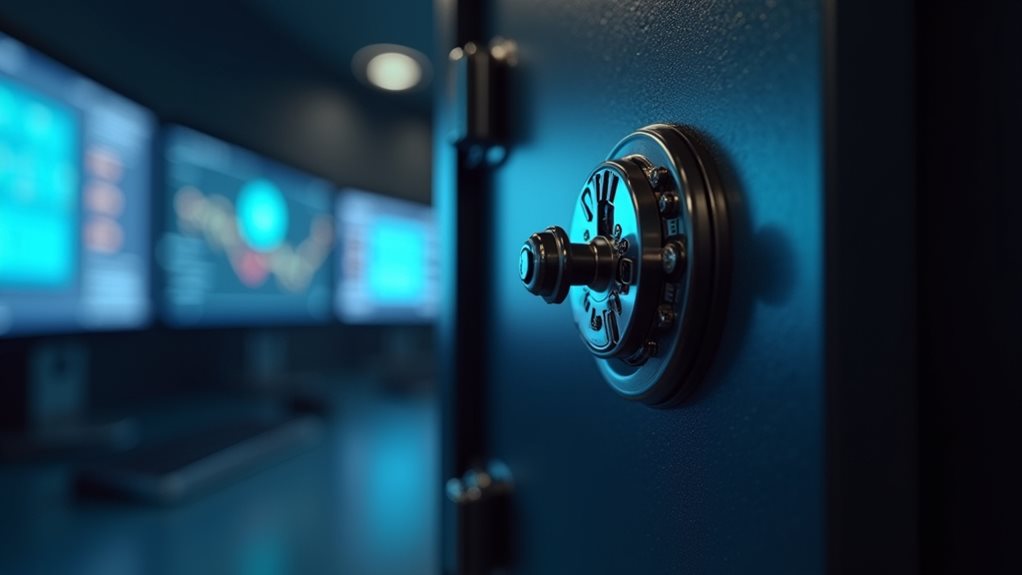
When serious money enters the crypto game, single-key wallets just don't cut it anymore. Multi-signature technology distributes control across multiple keys—requiring several signatures to approve transactions. It's like needing both the president AND vice president to launch nukes. Smart.
The multi signature benefits are undeniable:
- Enhanced security through decentralized authority (no single point of failure)
- Customizable setups like 2-of-3 or time-locked configurations
- Protection against that one friend who gets hacked every other Tuesday
- Perfect for businesses, DAOs, or paranoid crypto whales
But let's be real—multisig challenges exist. Setup can be complex. Not all blockchains support it. Proper implementation requires distinct entity distribution to maintain security integrity. Hardware wallets like Trezor Model T offer robust support for multi-signature setups with their advanced security features. Using KYC verification helps ensure legitimate ownership and transaction authority.
And God help you if key holders ghost each other before approving that urgent transaction.
Worth it? Absolutely.
Best Practices for Safeguarding Your Crypto Recovery Phrases
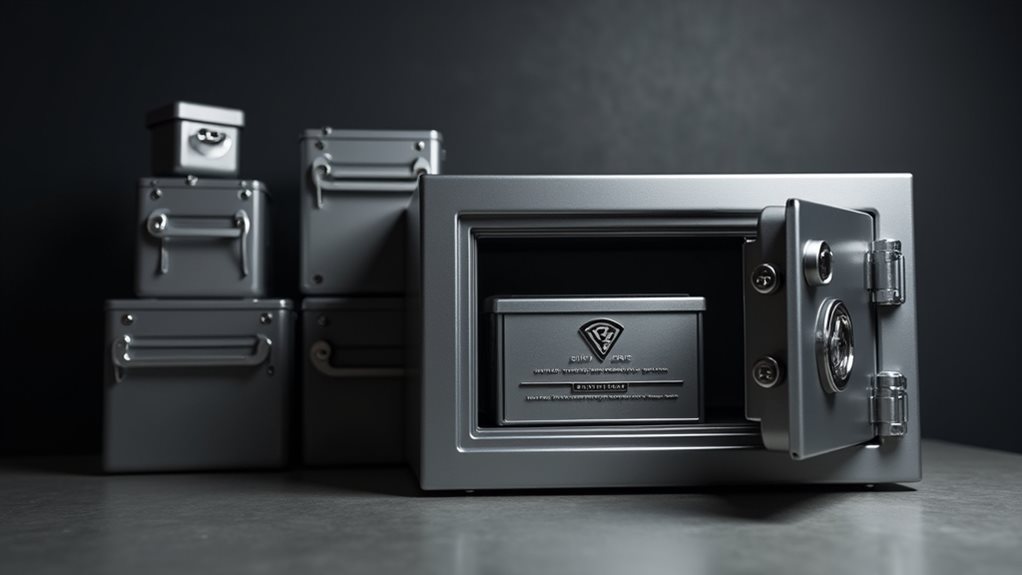
Multi-signature tech is impressive, but it's useless if you lose your recovery phrase—the ultimate skeleton key to your crypto kingdom.
Seriously. One slip-up and your digital fortune vanishes forever.
First rule of recovery phrase storage: keep it offline. Period. No clouds, no emails, no screenshots. Hackers can't steal what isn't online.
Keep your recovery phrase strictly offline—digital storage is just an engraved invitation for hackers.
Create multiple backups—fireproof safes, metal engravings like CRYPTOTAG, even bank deposit boxes.
Redundancy isn't paranoia; it's survival.
Never, ever share these words. Not with your spouse. Not with customer support. Not with that "helpful" stranger in your DMs.
Test your offline backup regularly.
You'd be shocked how many crypto millionaires can't access their wealth because they got sloppy with storage.
Don't be that cautionary tale.
For critical redundancy, distribute your backups geographically to protect against localized disasters.
Treating your recovery phrases as confidential information is absolutely essential for maintaining the security of your crypto assets.
Emerging Wallet Security Technologies Reshaping the Industry
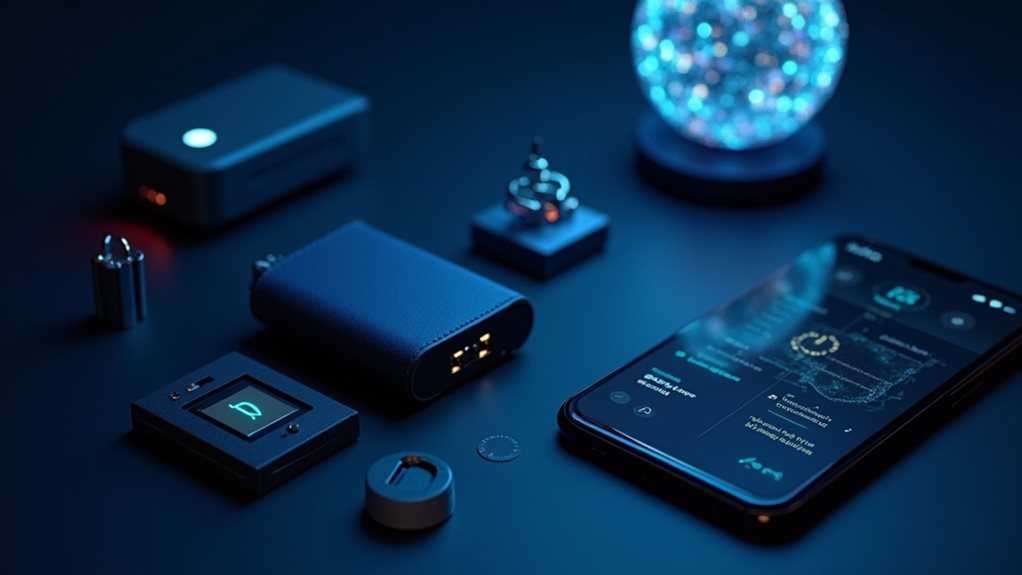
The crypto security landscape is evolving faster than most people can keep up with.
Yesterday's "unhackable" solutions are today's vulnerabilities. Period.
Biometric advancements now go beyond simple fingerprint scans to include behavioral patterns – yes, your wallet might recognize how you type or swipe.
Quantum security isn't just tech buzzword bingo anymore.
It's real, and it's necessary. SEALSQ's post-quantum solutions are already protecting assets from threats that most users don't even understand yet.
- Zero-knowledge proofs letting you verify without oversharing (finally!)
- Multi-signature technologies requiring multiple approvals (trust no one)
- AI-integrated wallets spotting suspicious activity before you do
- Cross-chain interoperability that doesn't sacrifice security for convenience
The QS7001 chip offers tamper-resistant hardware that keeps your private keys secure even when facing sophisticated physical attacks.
Modern wallets incorporating voice authentication create another powerful layer of protection against unauthorized access.
Face it: your old security measures are laughably outdated.
Frequently Asked Questions
Can Secure Crypto Wallets Be Hacked Through Quantum Computing?
Yes, your crypto wallets face quantum threats. Current encryption is vulnerable to quantum computing attacks. By 2025, these computers may crack your private keys, exposing wallet vulnerabilities unless you adopt quantum-resistant solutions.
How Do Wallet Security Features Impact Transaction Speed and Fees?
Your wallet's security features can affect transaction efficiency and fee structure. You'll find enhanced security often necessitates more verification steps, potentially slowing transactions but protecting your assets with minimal impact on fees.
Are There Insurance Options for Funds Stored in Hardware Wallets?
Currently, you can't get personal insurance for your hardware wallet. Businesses have access to crime and specie insurance options, with premiums ranging from 1-5%. Some exchanges offer limited insurance coverage on their platforms instead.
What Happens to My Crypto if the Wallet Manufacturer Goes Bankrupt?
Your crypto isn't directly affected if a wallet manufacturer goes bankrupt. Your recovery seed phrase is your safety net—it's not tied to the manufacturer's responsibility, so you can restore your assets on compatible alternatives.
How Do Biometric Security Features Compare to Traditional Authentication Methods?
Biometric security offers you significant advantages with unique identification and spoofing resistance, while traditional methods face drawbacks like vulnerability to phishing and hacking. You'll find biometrics more convenient as they don't require remembering complex passwords.





